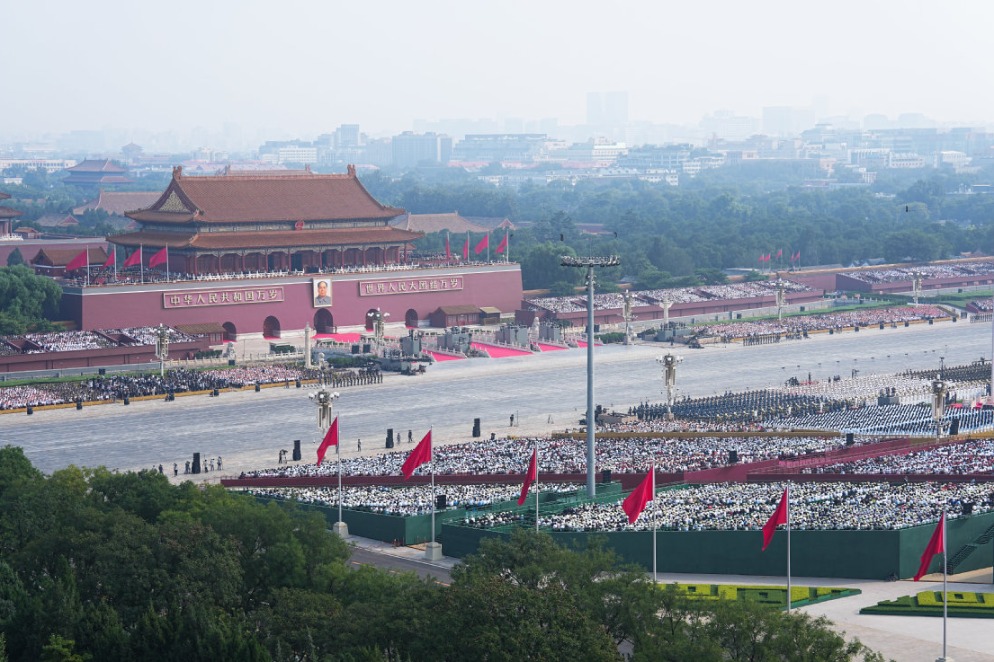Pre-prepared meals sector needs effective supervision

Instances of pre-prepared meals being passed off as freshly cooked have shaken consumer trust, illustrating the urgent need for strict supervision.
A recent dispute between an entrepreneur, who is also an influencer, and Xibei, a restaurant chain, has stirred public debate, drawing attention to the issue of pre-prepared meals in China's catering industry.
Xibei's apology on Monday was a sort of acknowledgment that its production processes fell short of consumer expectations. The chain, headquartered in Beijing, pledged to revise ingredient sourcing and improve quality across its menu. While these measures are welcome, they underscore a larger concern: the rules governing pre-prepared meals have long been a murky area, leaving consumers unsure about what they are eating and how safe it is.
Pre-prepared meals, as defined by the State Administration for Market Regulation and other departments in 2024, are dishes made from one or more edible agricultural products, to which no food preservative is added, though they undergo industrial preprocessing such as marinating, stir-frying or steaming. These meals must be heated or cooked before consumption and comply with storage, transportation and labeling requirements.
As the Xibei episode shows, compliance with these rules is inconsistent. The need for rigorous supervision of the pre-prepared food sector — such as following clear standards and ensuring transparent labeling — has never been more urgent than now as preprepared dishes become increasingly common on food delivery platforms and in bricks-and-mortar restaurants, helping businesses cut costs.
The amendment to the Food Safety Law adopted on Friday strengthens oversight, clarifies responsibilities and sets out industry standards.
To come into effect on Dec 1, it requires the food safety authorities to ensure that the pre-prepared meal producers implement robust food safety management systems, control the quality of raw ingredients, follow proper processing techniques and rigorously monitor storage and transportation conditions. Strict licensing, professional inspections and closed-loop supervision must be implemented to prevent lapses that could endanger public health or mislead consumers.
Transparency is essential. Consumers have a right to know whether their meals are freshly prepared or pre-prepared. Clear labeling in restaurants and on delivery platforms, combined with accessible channels for inquiries and complaints, will empower consumers to make informed decisions. Innovative tools, such as apps or websites providing real-time information on meal preparation, can further enhance transparency and build public confidence.
A restaurant group that consistently communicates honestly about its practices earns public trust, while concealment can inflict lasting damage on a brand's reputation.
The Xibei incident is proof that it takes far more than cost reduction to win market competition, and any restaurant considered to be putting profits before the well-being of its customers will pay for its shortsightedness. Companies that invest in quality, uphold safety, and maintain transparent operations are more likely to succeed in the long term. It is hoped that businesses in the sector will draw lessons from this case.
Consumers are not inherently opposed to pre-prepared meals — but they expect the practice to be disclosed, ingredients to be safe, and hygiene standards to have been met. The real challenge lies in ensuring honesty, safety and accountability throughout the supply chains.
The Xibei incident should serve as a wake-up call. By enforcing clear standards, promoting transparency and taking swift corrective action against violations, market regulators can protect consumers' right to safe, informed and reliable dining experiences.
When governance, corporate responsibility and consumer awareness align, pre-prepared meals can offer both convenience and safety, contributing to the long-term growth of the catering industry. Strengthened supervision, coupled with the commitment of companies to credibility and transparency, will help safeguard public trust.
































